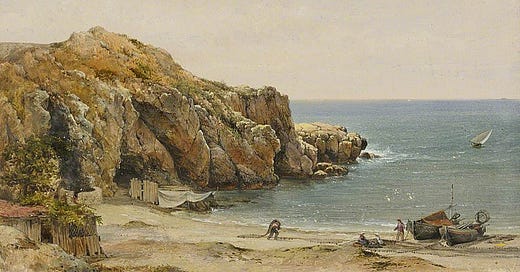Prometheus convinced Zeus to give him permission to create human beings, with the direction that Prometheus could not make them too powerful, too much like the gods, able to challenge the divine position. Prometheus agreed. But Prometheus adored his creation, so it was too tempting—he disobediently stole fire from Mount Olympus to give to human beings. Literal fire, which mankind could use to cook their meals, heat their homes, and forge their metals to build the physical structure of society.
And symbolic fire, the gift of reason, thought, and language, with which to understand the world, communicate ideas, and build the theoretical structure of society. With this gift of reason, to think, to think about thinking, to compose and spread ideas, human beings became a great threat to the gods—critical thinking and communicating in dialogue to build and share ideas are humankind’s most divine activities.
Connection
Dialogue is an important activity for human beings, the social animal, to make connections with interest in the subject, build ideas together, share ideas through communication, and employ reason. It is when one is exercising reason that one is being one’s best self, according to Aristotle’s ideas that man is a rational animal and things are at their best when acting in accordance to their essence. Dialogue is the form where individuals can engage together, fulfilling their best selves, and find joy in thinking. Coming together, they can recognize mutual interest, desire to collaborate, joy in the thinking process, the perspective of otherness, and inspiration and aspiration in the beauty of each other’s thinking, drive, and character.
Development
Through dialogue, ideas develop. Most of philosophical history involves opposing schools creating thesis, antithesis, and ultimately synthesis as they describe and contribute to the functioning of human beings and society. This exchange of ideas happens between individuals, friends, classmates, colleagues, and diplomats daily—it is the foundation of collaboration, construction, and creation. Thinkers develop and compare ideas through dialogue about how to live, what is the good, what are rights, how to get along, what to do, if meaning is a worthwhile pursuit: it is a tool for discovery, creation, building. Regardless of power dynamics, beauty of articulation, or barriers of language, the other brings alterity to check if the idea makes sense, why it was said, what can be done with it, what meaning it brings to the world. Feedback contributes to the next step, and so on. Thinkers give birth to ideas that take breath and gain meaning when they are written down to be read or spoken to be heard by another.
Emulation
There is as well benefit from alterity because the other brings inspiration, perspective, opportunity, and emulation. Via dialogue, each participant brings their experience and excitement for thinking work. One might tell a story that reminds the other of a book, and the sharing of this association likely inspires the first to either read the book or share their insight from the relation. One could offer a story, a problem, or an idea that invokes the other to bring some new consideration. Through questioning, answering, and building, the dialogue unfolds various perspectives that would not otherwise be considered. One could have many ideas unarticulated, while dialogue with the other provides the environment and listening ear to present the articulation of the ideas. The opportunity manifests itself in dialogue. One may be inspired by the life, joy, interests, energy, and experience of the other to bring some challenge of reaching for achievements, imitating good habits like reading and writing each day, looking for the positive. Dialogue invites the individual to leave their subjectivity by association and visualize the potential of life through the other.
This text is an excerpt from an article published in the IRCEP journal. Follow the link to read the full article:
Cook, K. E. & Varache, P. (2024). Religious Figures as Philosophers. Interdisciplinary Research in Counseling, Ethics and Philosophy. 4(10), 13-49. https://doi.org/10.59209/ircep.v4i10.73
Value of Dialogue
I was invited to give a talk at an Iranian school during an event joining philosophical practice and debate. The idea that there is a middle ground between these two activities that I passionately engage in was odd to me at first. While in practice the two look to be in conflict, they share many similarities in qual…
Pursuing a Philosophical Life: Practical Habits
What is essential to pursuing a philosophical life? This article will likely not stay stagnant, but evolve as ideas are formed and new activities are identified. These ideas are rather from a data point of one, from the subjective and biased perspective of the author who has been developing how to live her own philosophical lif…









the text is in interesting in the beginning but then it gets confused, and the english sounds awkward sometimes. The text is rather loose, it lacks precise analysis of what constitutes a dialog. In your text (i just read the email) I don't see the difference beween a dialog and a "nice conversation".